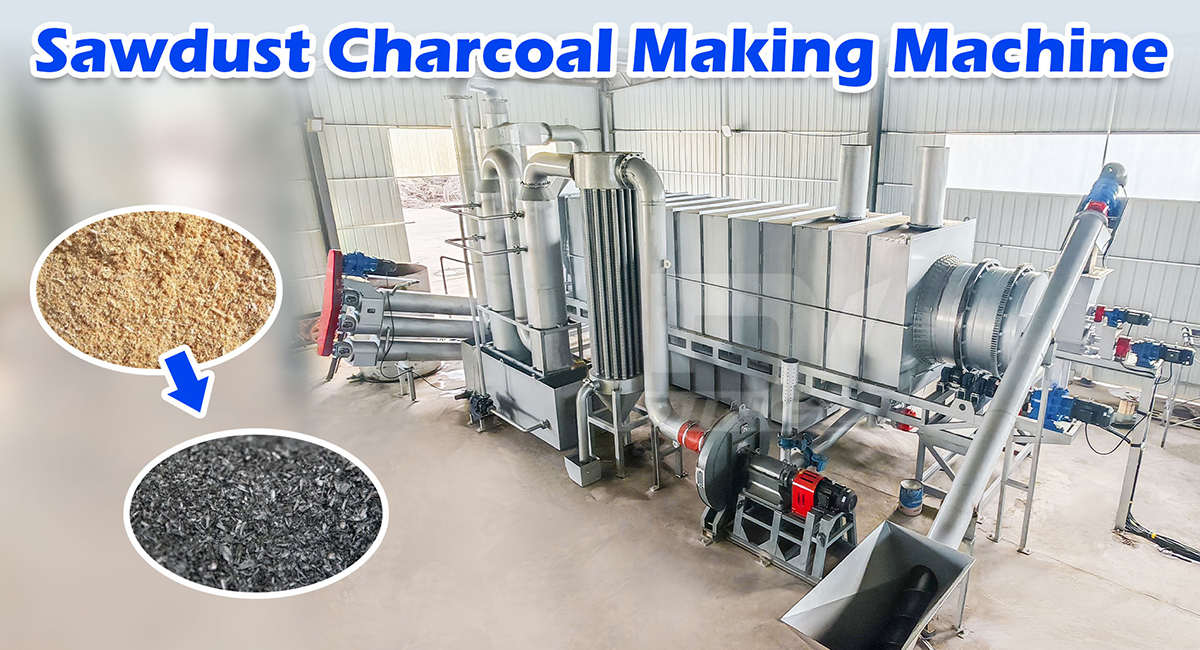 dinglimachine01@gmail.com
+86 16638159081(Wechat/WhatsApp)
dinglimachine01@gmail.com
+86 16638159081(Wechat/WhatsApp)
In charcoal production, carbonization time and temperature together constitute a "double-axis lever" for regulating depth. By adjusting the heating time and stage division, a variety of products from light fast-burning charcoal to high-density refined charcoal can be produced in the same equipment.
The short-term carbonization process (3-5 hours) focuses on surface transformation. In this mode, the wood undergoes rapid pyrolysis in a relatively low temperature range (250-350℃), and only a thin carbonized layer is formed on the outer layer, while some of the original characteristics are retained inside. This type of charcoal releases more volatile substances when burning, with bright flames and large smoke volume, which is suitable for low-cost civilian fuel scenarios.

Extending the carbonization time to 8-12 hours and combining it with a medium-high temperature (400-500℃) environment can achieve deep and uniform carbonization. At this time, the wood decomposes layer by layer from the outside to the inside, and the lignin and cellulose are fully converted into fixed carbon. The cross-section of the resulting charcoal has a uniform metallic luster and a crisp knocking sound. This type of charcoal has a stable calorific value, is smokeless and flameless, and is an ideal choice for high-quality barbecue charcoal and metallurgical reducing agent.
For ultra-deep carbonization needs (such as the preparation of conductive carbon materials), a segmented time control strategy needs to be introduced: in the early stage, low temperature is used for a long time (200℃/6 hours) to remove moisture and low-molecular organic matter; in the middle stage, the temperature is raised to 600℃ and maintained for more than 4 hours to completely destroy the microscopic pore structure of the wood; in the later stage, the carbon skeleton is naturally reconstructed by slow cooling for more than 48 hours. Although this process takes a long time, it can maximize the purity and functionality of carbon.
If you are interested in our equipment, please contact us.